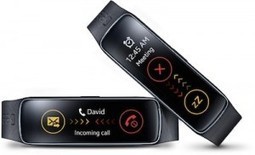The NIH is currently asking for pubic feedback on using smartphones and wearables to collect health and lifestyle data for its Precision Medicine Initiative — an initiative that hopes to collect data on more than 1 million individuals. The NIH’s Precision Medicine Initiative is described as:
a bold new enterprise to revolutionize medicine and generate the scientific evidence needed to move the concept of precision medicine into every day clinical practice
What exactly that means is a bit nebulous, but a New England Journal of Medicineperspective sheds some light:
Ultimately, we will need to evaluate the most promising approaches in much larger numbers of people over longer periods. Toward this end, we envisage assembling over time a longitudinal “cohort” of 1 million or more Americans who have volunteered to participate in research.
Qualified researchers from many organizations will, with appropriate protection of patient confidentiality, have access to the cohort’s data, so that the world’s brightest scientific and clinical minds can contribute insights and analysis.
The NIH is specifically asking the following:
Willingness of participants to carry their smartphone and wear wireless sensor devices sufficiently throughout the day so researchers can assess their health and activities.Willingness of participants without smartphones to upgrade to a smartphone at no expense.How often people would be willing to let researchers collect data through devices without being an inconvenience.The kind of information participants might like to receive back from researchers, and how often.Other ways to conveniently collect information from participants apart from smart phones or wearable devices.
It’s exciting to see the NIH see the potential of digital health. They specifically mention how smartphones and wearables can be utilized to collect a wide variety of data: location information, mobile questionnaires, heart rate, physical activity levels, and more.
There is already a robust discussion taking place in the comments section at the NIH website, and we encourage our readers to contribute.



 Your new post is loading...
Your new post is loading...










The NIH is specifically asking the following:
#wearables #healthcare #wearabledevices